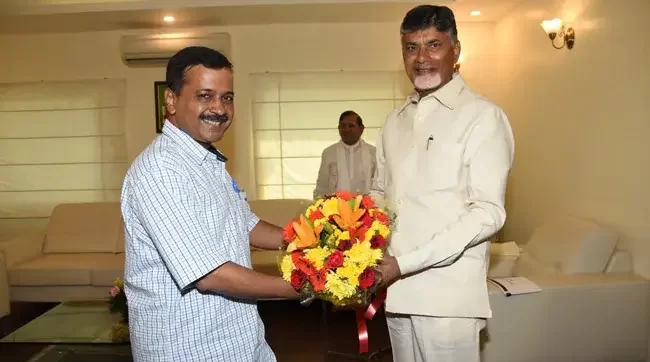In a boost for the BJP-led government at the center in its quest to override a Supreme Court ruling on who controls Delhi’s bureaucrats, Andhra Pradesh’s Telugu Desam Party (TDP) has announced It will support the parliamentary bill to do so, despite being a former opponent.
The TDP, which parted ways with the BJP-led National Democratic Alliance (NDA) in 2018 and brought a no-confidence motion against Prime Minister Narendra Modi’s government, now also plans to vote in support of the government against the opposition on the motion of no-confidence.
The government’s tally, already set to clear the NCT Delhi (Amendment) Bill 2023 in parliament, will receive a boost from the TDP’s support, with three MPs in the Lok Sabha and one MP in the Rajya Sabha. This means that both the regional parties of Andhra Pradesh, the ruling YSRCP and the opposition TDP, are now supporting the government.
Delhi Chief Minister Arvind Kejriwal’s Aam Aadmi Party (AAP) suffered a setback in its fight against the Delhi services bill as Odisha Chief Minister Naveen Patnaik-led Biju Janata Dal’s (BJD) support a day ago assured the bill will comfortably sail through the halfway mark in parliament.
The BJD, with nine MPs in the Rajya Sabha, will help the government cross the halfway mark in the upper house, where the BJP-led NDA does not have a full majority on its own.
The YSR Congress Party of Jagan Reddy, with nine members in the Rajya Sabha and 22 in the Lok Sabha, has already announced its support to the government on the critical bill.
The halfway mark in the Rajya Sabha is 120, and with support from the BJD, YSRCP, TDP, and Mayawati’s BSP, the BJP-led government has 127.
Around 109 MPs, including those from the 26-member opposition alliance INDIA and some Independents, are expected to vote against the bill, which is set to replace the controversial Delhi services ordinance.
The Government of National Capital Territory of Delhi (Amendment) bill replaces an ordinance for the control of Delhi’s bureaucrats, issued by the Centre to bypass a Supreme Court order stating that the elected government in Delhi, not the center, has control over the transfer and appointments of bureaucrats.







 Finance
Finance







